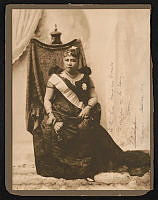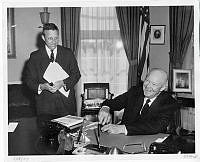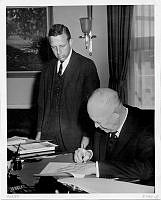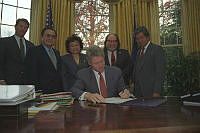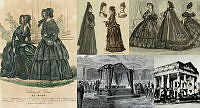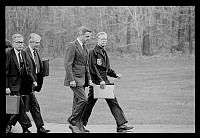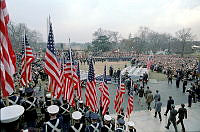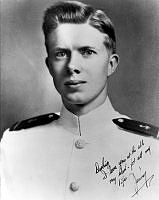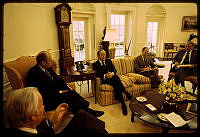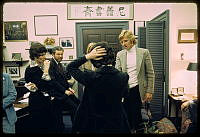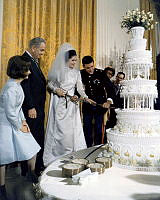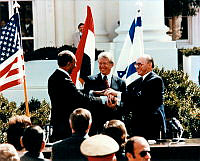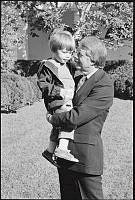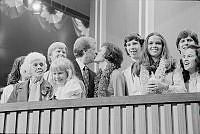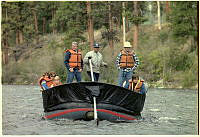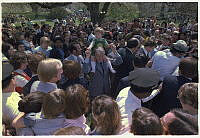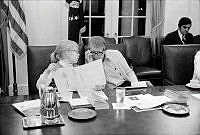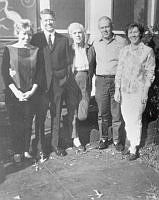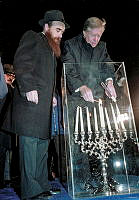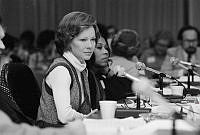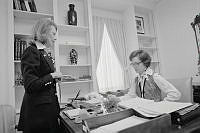Jimmy Carter

Jimmy Carter promised a government “as competent, as compassionate, as good” as the American people. His achievements were notable, but in an era of rising energy costs, mounting inflation, and increasing world crises, he found it difficult to meet Americans’ high expectations.
James Earl Carter Jr. was born October 1, 1924, in Plains, Georgia. Peanut farming, talk of politics, and the Baptist faith were mainstays of his upbringing. Upon graduation in 1946 from the Naval Academy in Annapolis, Maryland, Carter married Rosalynn Smith. The Carters had three sons, John William (Jack), James Earl III (Chip), Donnel Jeffrey (Jeff), and a daughter, Amy Lynn.
After seven years’ service as a naval officer, Carter returned to Plains. In 1962 he was elected a state senator and eight years later he was elected governor of Georgia. Among the new young southern governors, he attracted attention by emphasizing efficiency in government and the removal of racial discrimination.
When Carter announced his candidacy for president in December 1974, he was virtually unknown, but in the wake of national disappointments over Vietnam and Watergate, Democratic voters welcomed a fresh choice. He chose Minnesota Senator Walter Mondale as his running mate. Carter debated against President Gerald Ford three times and won with 297 electoral votes to 241 for Ford.
Carter worked to combat the continuing economic woes of inflation and unemployment. By the end of his administration, he could claim an increase of nearly eight million jobs and a decrease in the budget deficit, measured in percentage of the gross national product. But inflation and interest rates were at near record highs, and efforts to reduce them caused a recession.
Carter dealt with the energy shortage by proclaiming a national energy policy and by deregulating domestic petroleum prices to stimulate production. He prompted government efficiency through civil service reform and demanded deregulation of the trucking and airline industries. His expansion of the national park system included protection of 103 million acres of Alaskan lands. He created the Department of Education and Department of Energy. He also appointed recored numbers of women, African Americans, and Hispanics to federal positions.
Carter’s championship of human rights was coldly received by the leaders of the Soviet Union, but it inspired dissidents throughout the Soviet empire. He prevailed in a tough fight to win Senate ratification of the Panama Canal treaties. He also established full diplomatic relations with China and completed negotiation of the SALT II nuclear limitation treaty with the Soviet Union. Through 12 days of talks between Egyptian and Israeli leaders at Camp David in 1978, he achieved a peace agreement between the two countries called the Camp David Accords.
But during Carter’s final year in office, events seemed to conspire against him. The Soviets invaded Afghanistan. The revolutionary government of Iran refused to surrender 52 American hostages. (They were only released the day Carter left office.) Americans suffered from brutal inflation and unemployment. The national frustration culminated with Carter’s landslide defeat by Ronald Reagan in November 1980.
Although stung by his loss, Carter became what many have called “the best former president in history,” building in Atlanta not only a presidential library but a center devoted to conflict resolution, supervising democratic elections abroad, and combating disease. For such efforts in 2002, Carter became the third American president (after Theodore Roosevelt and Woodrow Wilson) to win the Nobel Peace Prize. Although now in his nineties, Carter continues to devote his life to service, building homes through Habitat for Humanity.







